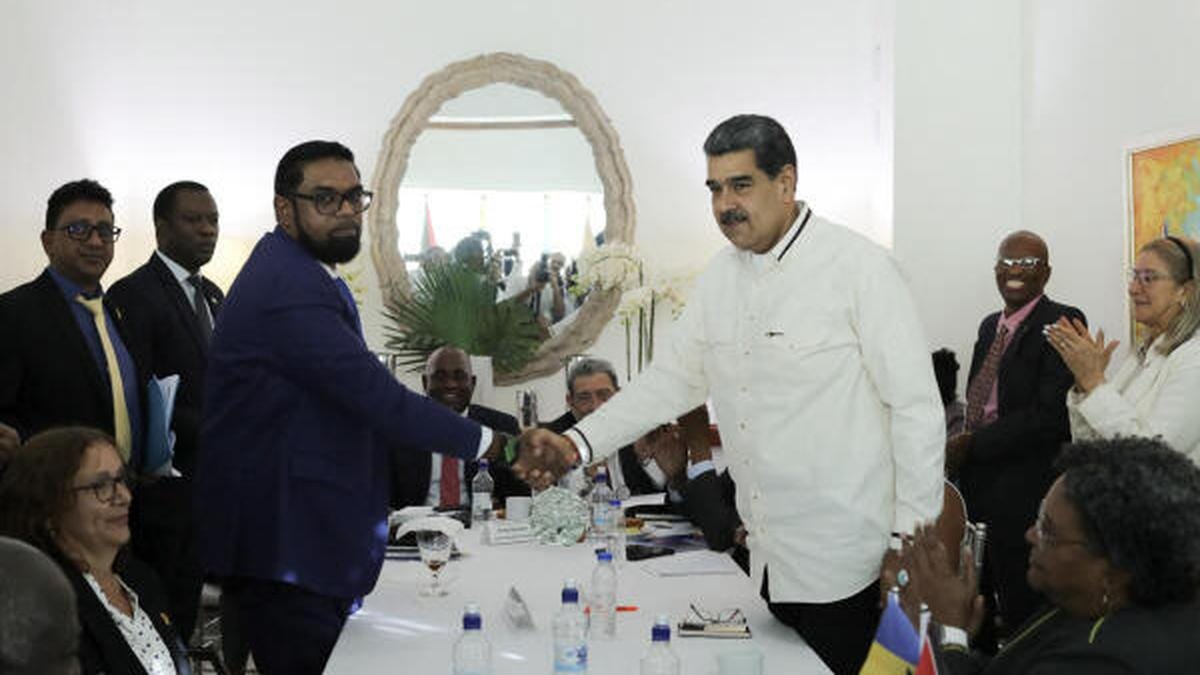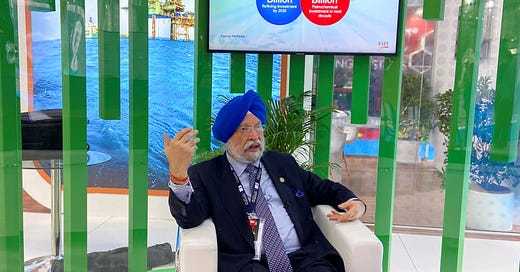Venezuela-India Oil Partnership: Oil Shapes Geo-Politics and Global Diplomacy
The recent easing of tensions between Venezuela and its oil-rich neighbor Guyana comes as a significant reassurance for India.
India's Strategic Oil Trade with Venezuela: A Move Towards Greater Energy Security
New Developments: Lifting of Sanctions and India's Response
In a notable development, India is poised to recommence oil imports from Venezuela, a move facilitated by the recent lifting of U.S. sanctions on the South American country. On December 15, Hardeep Singh Puri, the Minister for Petroleum and Natural Gas, a former career diplomat, confirmed India's preparedness to resume oil trade with Venezuela. He particularly emphasized the capability of Indian refineries, such as Indian Oil’s Paradip unit, in processing Venezuela's heavy crude oil. This relaxation of the nearly three-year-old sanctions reflects a strategic move by the USA to displace Russian oil from the global market.
Economic Implications: Unlocking Indian Investments
This development carries considerable economic implications for India, especially concerning the release of Indian investments in Venezuela. A prime example is ONGC's accumulated dividends, which total around $500 million since 2014, generated from its joint ventures in the Latin American nation. This sum plays a pivotal role in the revived trade relations. It is anticipated that these outstanding funds will be employed to finance oil purchases, creating a mutually beneficial situation for both countries.
Geopolitical Strategy: Diversifying Oil Sources
This strategic move aligns with India's objective to diversify its oil sources, particularly after the increase in oil imports from Russia following the Ukraine conflict. As India meets over 80% of its crude oil requirements through imports, engaging with Venezuela not only facilitates competitive pricing but also highlights India's skillful navigation of intricate geopolitical landscapes. India, obtaining Russian oil at prices below the global market rate, has resisted US pressure to reduce its reliance on Russian oil. India frequently references the EU's heavy dependence on Russian gas in its diplomatic discussions, underscoring that its foreign policy is driven by national and strategic interests, rather than aligning uncritically with the stances of any superpower.

Venezuela, Guyana Agree Not to 'Use Force' to Settle Land Dispute
Recent Developments in the Venezuela-Guyana Dialogue
In a significant step towards peace, Venezuela's President Nicolas Maduro and Guyana's President Irfaan Ali have committed to a non-violent resolution of their territorial dispute. During a pivotal meeting in Saint Vincent and the Grenadines on December 14, 2023, the leaders agreed to avoid the use of force over the contested Essequibo region. This handshake symbolizes a hopeful turn in a dispute that has simmered for decades over this oil-rich territory.
Key Outcomes of the High-Level Meeting
The joint statement, read by Prime Minister Ralph Gonsalves of Saint Vincent, laid out concrete measures to prevent sudden escalations of tension. However, the question of the appropriate global jurisdiction for settling the dispute remains unresolved. While Guyana supports the International Court of Justice's involvement, Venezuela has declined to recognize its authority over the matter.
Prospects for Regional Stability and Diplomacy
The agreement to meet again in Brazil within three months, under the mediation of Brazilian leader Luiz Inacio Lula da Silva, underscores a commitment to regional unity and peaceful coexistence. This development is a testament to Latin America and the Caribbean's dedication to resolving conflicts through diplomatic channels.
Escalating Tensions in South America
Turning to the geopolitical dynamics within Venezuela, the nation's assertive territorial claims over parts of Guyana present a complex mix of historical context, resource competition, and international diplomacy. These claims are deeply entrenched in the region's colonial past and have been reinvigorated by recent oil discoveries. However, for now, any armed conflict is effectively ruled out.
Renewed Territorial Claims and Shifting Global Dynamics: The Venezuela-Guyana Dispute
Venezuela's reinvigorated claim to the Esequibo region under President Nicolás Maduro, fueled by both nationalistic fervor and strategic motives linked to the discovery of oil reserves, has introduced a new layer to the protracted dispute. This development has drawn considerable attention on the global stage, especially from the United States, which traditionally sided with Venezuela under the Monroe Doctrine in the colonial era. The recent shift in U.S. foreign policy, demonstrated by conducting military exercises with Guyana, adds further complexity to the dispute. This situation exemplifies the complex interplay between historical territorial claims and contemporary geopolitical dynamics.
Conclusion: Balancing National Aspirations with Global Norms
The evolving situation in South America highlights the need for a delicate balance between national goals and international legal principles. The commitment to peaceful resolution in the Venezuela-Guyana dispute and India's strategic oil partnership with Venezuela both demonstrate the importance of diplomacy in maintaining global stability.






